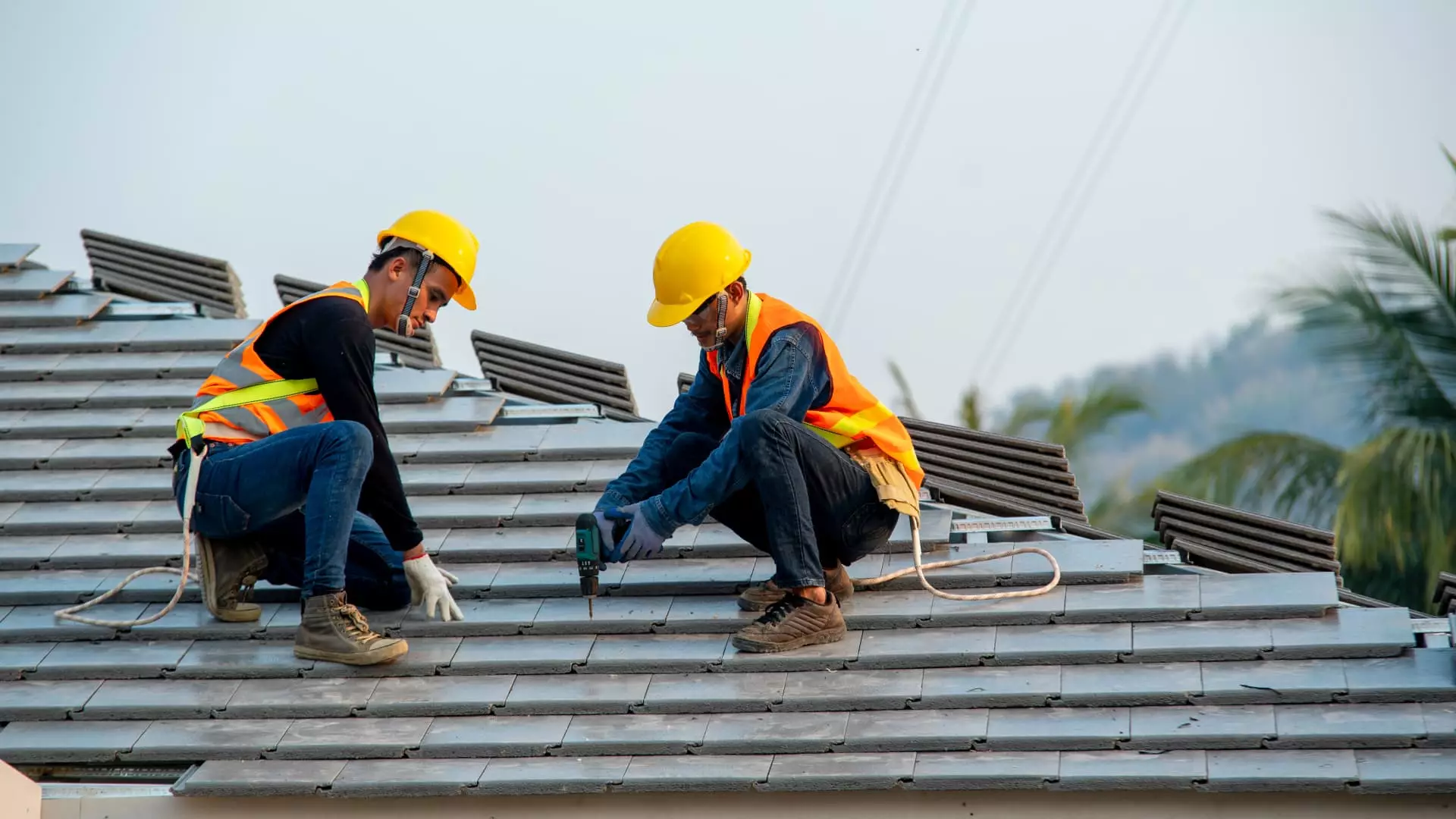Home repairs and renovations can significantly strain both finances and time. According to a recent survey conducted by Clever Real Estate, a surprising statistic reveals that nearly one-third of homeowners are willing to compromise on hiring contractors by accepting those with questionable backgrounds. Such decisions may stem from the pressing need to manage renovation costs, as many homeowners prioritize quick fixes over thorough evaluations. While it’s understandable for homeowners to seek cost-effective solutions, the implications of these choices can lead to more serious issues down the road.
A staggering 25% of surveyed homeowners deemed reputation as the foremost consideration when selecting a contractor, followed closely by experience at 23% and cost at 19%. This inquiry conducted among 1,000 U.S. homeowners highlights an underlying paradox; even as reputation is regarded as crucial, many are still inclined to overlook it in favor of financial savings. Such trade-offs may ultimately result in unforeseen expenses and stress, particularly if the contractor fails to deliver substantially on their promises.
Experts emphasize that entrusting repairs to an underqualified contractor may lead to additional costs, thus negating any initial savings. Jamie Dunaway-Seale, an author of the Clever report, describes a “questionable contractor” as someone who may not be transparent about pricing, lacks necessary skills, or fails to complete the work altogether. Angie Hicks, co-founder of Angi, reinforces this sentiment by advocating for hiring contractors with integrity, even if they are relatively new to the industry. The rationale is simple: inexperienced contractors may still offer the motivation and commitment necessary to complete jobs with quality and honesty.
Adding to the dangers associated with hiring unreliable contractors is the heightened risk of fraud during periods of crisis, such as after natural disasters. Loretta Worters of the Insurance Information Institute warns that unscrupulous contractors often take advantage of desperate homeowners seeking repairs post-disaster. The Justice Department and the Consumer Financial Protection Bureau have raised alarms about possible scams following calamities, suggesting consumers remain vigilant. In instances of storm damage, such as that expected from Hurricane Milton, it is crucial for homeowners to seek trustworthy professionals to avoid becoming prey to fraud.
Given the real dangers associated with hiring unqualified help, what steps can homeowners take to safeguard themselves from fraud? Experts suggest that due diligence is paramount. Before engaging any contractor, begin by conducting a comprehensive reputation check. This includes seeking recommendations from friends and family who have previously worked with contractors, as personal referrals can provide top-notch leads.
Upon gathering a list of potential candidates, delving into online reviews is essential. This aspect allows homeowners to gauge the experiences of previous clients. Engaging with references is also crucial; asking contractors directly for previous customers can serve as a litmus test for their credibility. Dunaway-Seale notes that reluctance on the contractor’s part to provide references should serve as a red flag.
Furthermore, verifying credentials and licensing cannot be overlooked. Homeowners should confirm whether their potential contractor possesses the necessary qualifications and has the proper licenses. While not every U.S. state mandates licensing for contractors, those located in jurisdictions that do should be ready to show proof. Ensuring that a contractor holds insurance provides an additional layer of financial protection for homeowners, safeguarding them against potential mishaps during the renovation process.
Early interactions with potential contractors can provide insights into their professional conduct and transparency. Homeowners should expect detailed, written estimates that clearly outline the scope of work and payment structure. Angie Hicks suggests that upfront payments should never exceed 10-20% of the total project cost, urging clients to remain cautious about large deposits before work commences. The practice of obtaining multiple estimates serves as a means to discern normal pricing trends, thereby helping to illuminate any potential red flags.
As tempting as it may be, homeowners should remain cautious of deals that seem overly favorable. Often, if an offer appears too good to be true, it tends to conceal hidden dangers. Those seeking renovation work must prioritize quality over cost, ensuring that the professionals they hire align with their expectations for reliability and proficiency. Engaging with trustworthy contractors not only aids in completing projects successfully but can also reduce the likelihood of costly mistakes that may pile up over time.
While the allure of saving money may tempt many homeowners to overlook a contractor’s reputation, exercising caution and diligence can help ensure a successful and stress-free renovation experience. By prioritizing thorough vetting processes and open communication, homeowners can protect their investments and avoid the pitfalls of hiring dubious contractors.

